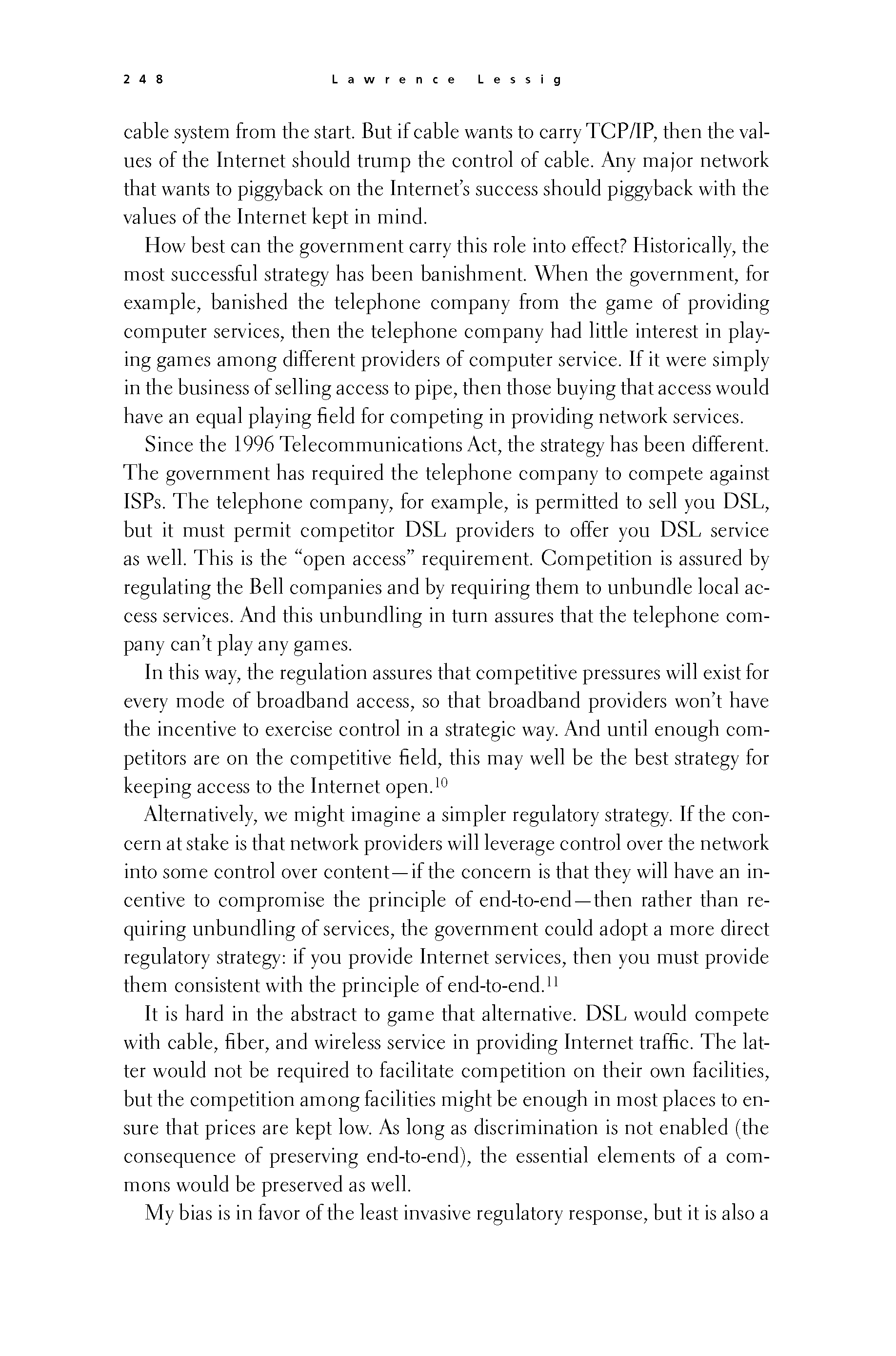 p247 _
-chap- _
toc-1 _
p248w _
toc-2 _
+chap+ _
p249
p247 _
-chap- _
toc-1 _
p248w _
toc-2 _
+chap+ _
p249
cable system from the start. But if cable wants to carry TCP/IP, then the val-
ues of the Internet should trump the control of cable. Any major network
that wants to piggyback on the Internet's success should piggyback with the
values of the Internet kept in mind.
How best can the government carry this role into effect? Historically, the
most successful strategy has been banishment. When the government, for
example, banished the telephone company from the game of providing
computer services, then the telephone company had little interest in play-
ing games among different providers of computer service. If it were simply
in the business of selling access to pipe, then those buying that access would
have an equal playing field for competing in providing network services.
Since the 1996 Telecommunications Act, the strategy has been different.
The government has required the telephone company to compete against
ISPs. The telephone company, for example, is permitted to sell you DSL,
but it must permit competitor DSL providers to offer you DSL service
as well. This is the "open access" requirement. Competition is assured by
regulating the Bell companies and by requiring them to unbundle local ac-
cess services. And this unbundling in turn assures that the telephone com-
pany can't play any games.
In this way, the regulation assures that competitive pressures will exist for
every mode of broadband access, so that broadband providers won't have
the incentive to exercise control in a strategic way. And until enough com-
petitors are on the competitive field, this may well be the best strategy for
keeping access to the Internet open.[14-10]
Alternatively, we might imagine a simpler regulatory strategy. If the con-
cern at stake is that network providers will leverage control over the network
into some control over content -- if the concern is that they will have an in-
centive to compromise the principle of end-to-end -- then rather than re-
quiring unbundling of services, the government could adopt a more direct
regulatory strategy: if you provide Internet services, then you must provide
them consistent with the principle of end-to-end.[14-11]
It is hard in the abstract to game that alternative. DSL would compete
with cable, fiber, and wireless service in providing Internet traffic. The lat-
ter would not be required to facilitate competition on their own facilities,
but the competition among facilities might be enough in most places to en-
sure that prices are kept low. As long as discrimination is not enabled (the
consequence of preserving end-to-end), the essential elements of a com-
mons would be preserved as well.
My bias is in favor of the least invasive regulatory response, but it is also a
[[248]]
p247 _
-chap- _
toc-1 _
p248w _
toc-2 _
+chap+ _
p249